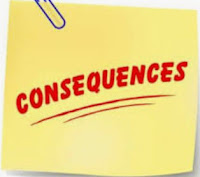President Trump’s recent suggestion that Americans might inject themselves with
disinfectants as a way of treating Covid-19 sparked an intense debate among the three of us about who’s to blame for the presence in office of such a president. Rob throws everyone who voted for him under the bus, arguing that “respectable” people who voted for Trump in 2016 now
bear responsibility for his dangerous conduct. Henry and Woodson take a more restrained position, concluding that not everyone who voted for Trump foresaw the extremes to which he has gone. They say those who sat out the 2016 election bear responsibility too. Below, we hash out the disagreement.
DO ONLY TRUMP VOTERS OWN THIS?
After Trump made his outrageous suggestion that injections of disinfectants like bleach or
isopropyl alcohol inside the human body
might combat the virus, many in the medical and scientific community and manufacturers of disinfectant products reacted with horror. They had good reasons. Americans desiring Covid-19 cures flooded health hotlines and emergency management agencies countrywide with calls about such treatments. The product manufacturers warned of organ damage that could result from injecting or ingesting disinfectants. Doctors were aghast and shouted to whoever would listen, “No, don’t do it!”
As industry leaders, doctors, and public health officials scrambled to warn people against the president’s advice, Rob thinks it significant that some of them must have voted for him. He observes, “Surely, some of the doctors, nurses, public health officials, and industry executives who loudly condemned Trump for his potentially disastrous suggestion, voted for him.” Neither Henry nor Woodson find that particularly revelatory.
What Did Voters Know and When Did They Know it?
The three of us agree it’s now widely understood Trump doesn’t care much for science. The Union of Concerned Scientists, for example, has published a 100 item list of Trump administration attacks on science. That’s bad enough, but we did receive advance warning. Before the 2016 election, we got at least the following indications of Trump’s scientific illiteracy or hypocrisy and his affinity for off-the-wall theories:
1. Windmills cause cancer and kill birds.
Trump started pushing this falsehood before the election in making clear he wouldn’t promote wind power as a fossil fuels alternative;
2. Climate change is a hoax. Despite the scientific community consensus that human activity causes
global warming, Trump insisted before the election, and still does, his political enemies made up the climate crisis and the science isn’t real;
3. In a rating by Scientific American magazine of the general election candidates, including third party entrants, Trump came in last on his understanding of scientific endeavors.
These facts have significant consequences.
They demonstrate a dangerous proclivity for buying into conspiracy theories that float through the culture, particularly on the internet, without scientific basis and that could hurt individuals or nations.
Even these facts, Henry and Woodson argue, didn’t necessarily predict Trump would suggest a wild idea like injecting disinfectants. Rob says, “That sounds like a degree v. kind argument. Nobody would have thought Trump would take his craziness to the degree he has. I prefer thinking anyone capable of believing the kinds of things Trump said before the election, if given an exigent situation and a big enough microphone, might say anything.”
Woodson and Henry note that Trump never held public office before, so he had no policy record voters could easily examine.
Unlike the three of us, the average American doesn’t spend hours each week considering the nuances of candidate records and public policy. They believe Rob holds the electorate to too high a standard.
How Does a Country Get Such a Leader?
As Rob thought about the dangers inherent in Trump’s injection suggestion, he decided condemning him alone isn’t enough. “True,
the electorate put him in the White House, fair and square. But, don’t the people who voted for him bear some of the responsibility for having someone like him in office, given what we knew beforehand? Now that his conduct directly threatens lives, can we excuse those votes, especially by people who should know better – people like those in health care now crying out that Americans shouldn’t follow his reckless ramblings?”
Rob continues, “I don’t have survey data, but the reasons doctors and other medical people might have voted for Trump aren’t hard to fathom - probably the same reasons others did - tax cuts, limits on immigration,
fears of disfavored ethnic groups, appointment of anti-choice judges, reigning in the Environmental Protection Agency, and other federal regulatory bodies, unrestrained Hillary Clinton phobia. I assume there are others. Were any of those reasons worth this?
“I understand the harshness of the view I’ve expressed. I have thrown otherwise good
people under the bus before. Elections have consequences. I can’t give Trump voters a pass, especially not after this latest demonstration of insanity.”
While Henry and Woodson share Rob’s view that Trump has demonstrated his unfitness for office, they won’t say everyone who voted for him could have foreseen this. Who could have known the election would produce a president seemingly committed only to his own selfish political quest, devoid
of logic, humanitarian consideration, or enlightened principles? Nor are they willing to single out doctors and other medical professionals for special condemnation. They believe many who stayed home or voted for Trump in 2016 will vote for Joe Biden in 2020 because Joe Biden is no Hillary Clinton. Many former Trump voters will no longer have reason for seeing Trump as the answer to the country’s problems.



















